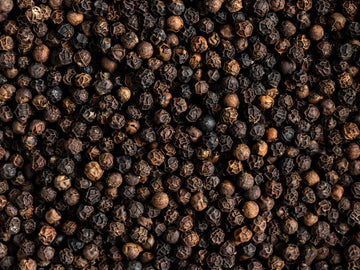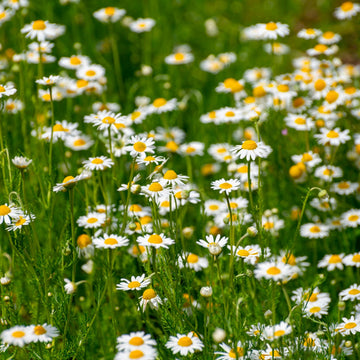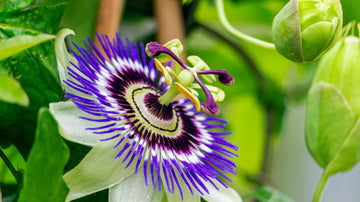Skullcaps are flowering plants native to north east Asia from the mint family and are one of the 50 fundamental herbs used in traditional Chinese medicine. Skullcaps are commonly used as supplements and teas to boost mood and lower anxiety.
Skullcap refers to over 200 plant species with the genus Scutellaria. Scutellaria baicalensis is one of the most common species of skullcap which is also known as Baikal Skullcap or Chinese Skullcap. The name Skullcap refers to the plant's flowers resembling "miniature medieval helmets", or caps for your skull.
 Skullcap flowers resembling medieval helmets
Skullcap flowers resembling medieval helmets
How Does Skullcap Reduce Anxiety and Stress?
A chemical analysis study of American Skullcap (Scutellaria lateriflora L.) found that certain flavonoids were likely playing a role in the anti-anxiety qualities of skullcap [1]. Flavonoids are plant chemicals found all over the plant kingdom that provide fruits, vegetables, and flowers their color. Flavonoids are broken down by the body to benefit us; they provide antioxidant and anti-inflammatory benefits.
Skullcaps contain many flavonoids such as baicalin, baicalein and wogonin, among other amino acids and compounds that are thought to play a role in the anti-anxiety property of skullcaps. Baicalin and baicalein are known to bind to the benzodiazepine sites that are part of the GABA receptor complex. GABA is a neurotransmitter that works on the central nervous system and produces a calming effect on the body. Drugs such as Xanax and Alcohol also produce the same effect by working with GABA.
Does Skullcap Work for Anxiety and Stress?
In a 2013 human study of American Skullcap, 43 subjects were given Skullcap three times daily or a placebo for two weeks [2]. The skullcap group had significantly enhanced positive mood without a reduction in energy or cognition. Additionally, in a survey to herbal medicine practitioners found that the survey population considered it to be an effective intervention for anxiety and stress [3].
How to Take Skullcap?
When should you take skullcap?
Skullcap can be taken anytime day or night, it is personal preference. Many users may find it energizing and take it in the morning, while others may find it makes them too relaxed to be productive and they take it in the evening.
Should you take skullcap with food?
Skullcap can be taken with or without food. Some users may find it leads to mild stomach discomfort so they take it after a meal or small snack.
What dose of skullcap should you take?
Skullcap has been studied at 350mg and is a common dosage found in popular Skullcap supplements.
Skullcap can also be consumed as a tea where 1-2 teaspoons of dried skullcap herb are steeped in boiling water for 10-15 minutes.
One serving of ZenHighs provides 300mg of high quality organic Baikal Skullcap Root. ZenHighs differs from competitors in that it is combined with 6 other synergistic and clinically proven ingredients to provide greater relief from stress and anxiety than skullcap alone.
How long does it take to feel skullcap?
Skullcap users on the herbalism Reddit community report they can feel the calming and anxiolytic (anti-anxiety) effects of the plant within 30 min to 60 min.
ZenHighs is a potent blend of 7 studied and proven adaptogenic plants. Learn more about ZenHighs on the product page.
- Awad R, Arnason JT, Trudeau V, Bergeron C, Budzinski JW, Foster BC, Merali Z. Phytochemical and biological analysis of skullcap (Scutellaria lateriflora L.): a medicinal plant with anxiolytic properties. Phytomedicine. 2003 Nov;10(8):640-9. doi: 10.1078/0944-7113-00374. PMID: 14692724.
- Brock C, Whitehouse J, Tewfik I, Towell T. American Skullcap (Scutellaria lateriflora): a randomised, double-blind placebo-controlled crossover study of its effects on mood in healthy volunteers. Phytother Res. 2014 May;28(5):692-8. doi: 10.1002/ptr.5044. Epub 2013 Jul 22. PMID: 23878109.
- Christine Brock, Julie Whitehouse, Ihab Tewfik, Tony Towell,
The use of Scutellaria lateriflora: A pilot survey amongst herbal medicine practitioners,
Journal of Herbal Medicine,
Volume 2, Issue 2,
2012,
Pages 34-41,
ISSN 2210-8033,
https://doi.org/10.1016/j.hermed.2012.04.005.





